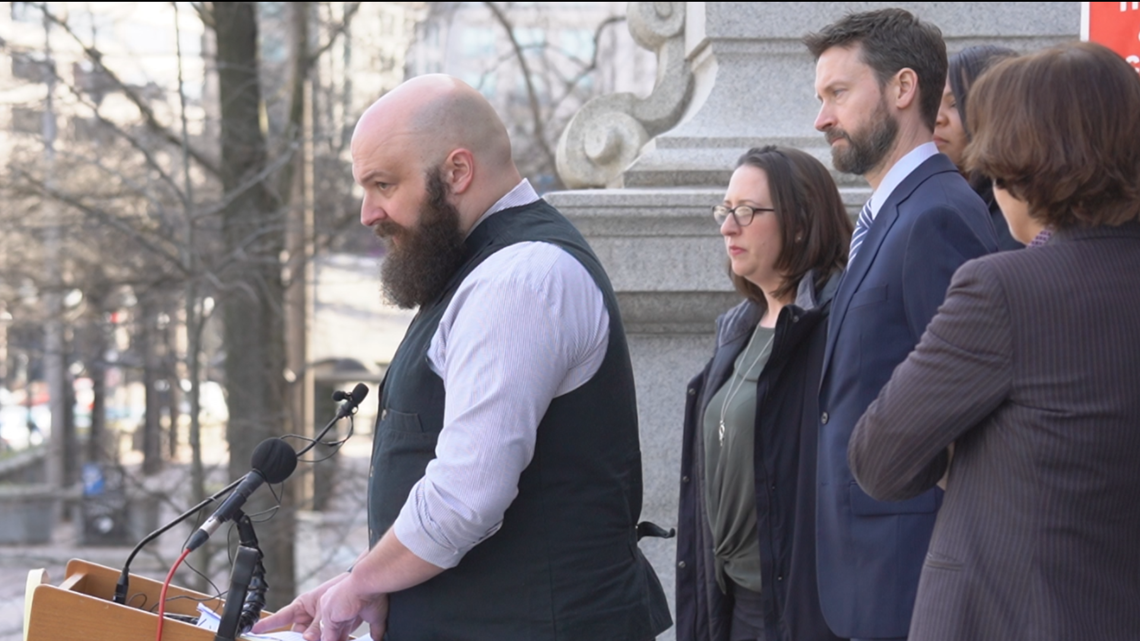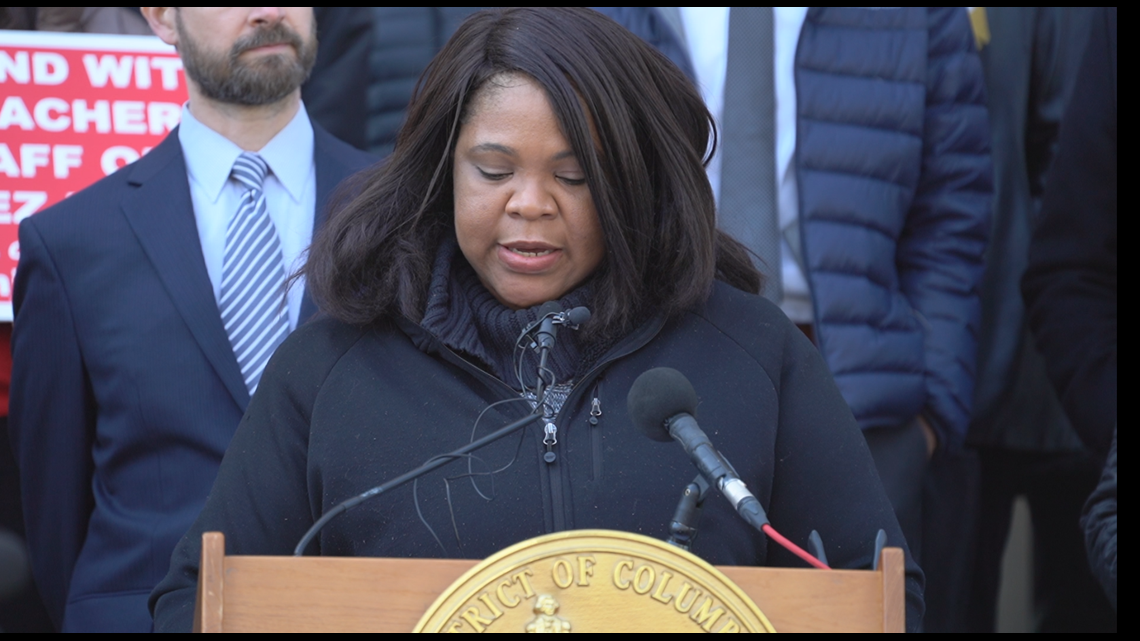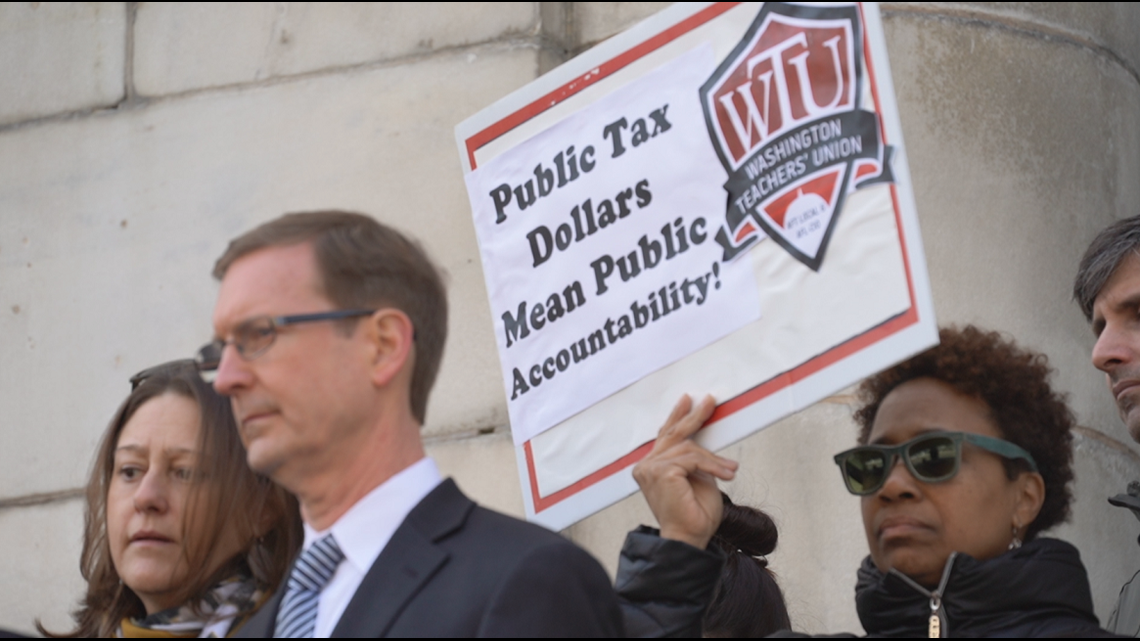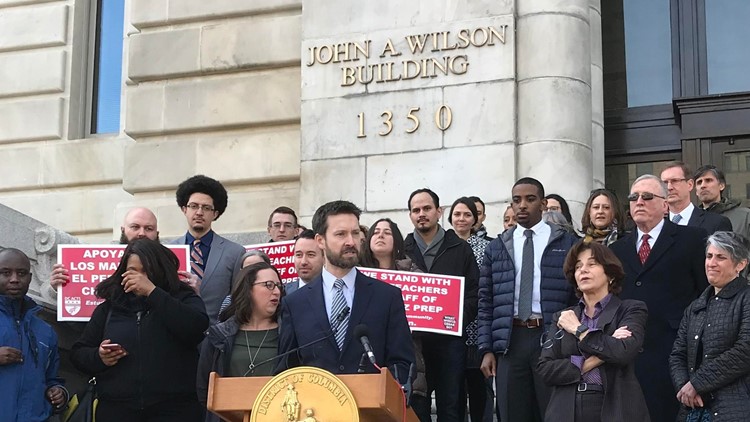WASHINGTON —
A new piece of legislation introduced Wednesday would require information from D.C. Public Charter Schools to be more accessible to the public, following intense scrutiny from council members and the public that D.C. Public Charter Schools were trailing behind in nationwide transparency standards.
The “Public School Transparency Act of 2019”, introduced by council member Charles Allen (D-Ward 6), aims to increase transparency between the public and D.C. Public Charter Schools by subjecting charter schools to open government laws FOIA requests and salary reporting, an effort already in place by 39 other states around the country.
"When tax dollars are involved, the public has a right to know how that money is spent and the decisions around it,” Allen said standing on the steps of the John A. Wilson District Building, surrounded by parents, teachers and advocates from the group EmpowerEd.
D.C. Public Charter Schools, which are funded by taxpayer money but privately operated, run under a different code of standards than traditional public schools, allowing them to bypass required reporting laws and keep certain records and meetings closed.
The new law would change that, requiring the schools to be held under the same standards and publicize FOIA requests and their costs to the D.C. Council, as well as the costs and reports of PCSB annual contracts and the amount of money donated over $500 to the school. Currently, D.C. Public Charter Schools are required to list the names of those who donated over $500, but the new law would require the specific amount to be disclosed as well.
Beyond transparency with records and finances, the new legislation also intends on giving parents and school communities more access to the decision making process and to voice their opinions by sitting in on open meetings. Two teachers would now be able to sit in on the once private board meetings, and in the case of high schools and adult learning schools, so would a student.
The transparency would now allow educators to sit in on crucial meetings ranging from everything to funding to school closures, a topic that Cesar Chavez Prep science teacher Christian Herr knows all too well.
Cesar Chavez Prep is expected to close at the end of the school year, a decision Herr says he discovered initially through media exposure. Herr said that the Cesar Chavez Board of Directors withheld crucial knowledge of the closure for months in fear of public reaction. Herr thinks transparency will prevent shielding educational officials from accountability.
“At no point during this horrific and gut-wrenching process did our board of trustees reach out to a single parent, a single student, a single neighbor or a single educator,” said Herr. ”This kind of thinking, that consultants and school boards ‘know what’s best’ and that families and educators do not and therefore should be ignored… is a tragedy to our schools and a trauma to our children and should not be allowed to happen.”


Had the bill been introduced earlier, Herr said that Chavez Prep still might have closed, but that families and educators “would have been in the room when that closure was discussed - that is a right and a basic respect that my students and families deserves … a right this bill guarantees.”
Such families include Chioma Oruh, a parent whose children attended both DCPS and charter school.
Oruh said she “enthusiastically supports” Allen’s proposal and believes the legislative measures enforce necessary oversight in city leaders, which in turn creates positive engagement and trust between school communities and parents like herself.
- “School transparency allows families to be on the same page with the schools, and ensures that public resources are being used for each and every student in the most impactful and meaningful way,” said Oruh. “A parent’s right to choose a school for our children is jeopardized without transparency... we can’t make informed decisions without it and we shouldn’t have to. “


Oruh believes the new measure would help families gain trust in the system by seeing exactly how resources are allocated for their children, as well as staff and therapist availability and program cuts.
“Many of our families often have difficulties in determining how our resources are spent on special education or education in general,” said Oruh. “Transparency promotes positive engagement with families and their communitiy and is the gateway into ensuring that the right people have a seat at the table to serve the interests of the school community.”
The current bill is expected to go before the Council on a legislative meeting on March 19.





